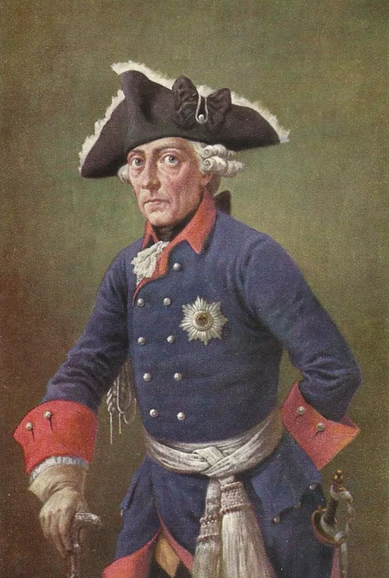Editor’s note: The following is extracted from The World’s Famous Orations, Vol. 7 (published 1906).
TO HIS GENERALS BEFORE INVADING SILESIA (1740)
Gentlemen, I am undertaking a war in which I have no allies but your valor and your good will. My cause is just; my resources are what we ourselves can do; and the issue lies in fortune. Remember continually the glory which your ancestors acquired in the plain of Warsaw, at Fehrbellin and in the expedition to Preussen. Your lot is in your own hands: distinctions and rewards await upon your fine actions which shall merit them.
But what need have I to excite you to glory? It is the one thing you keep before your eyes; the sole object worthy of your labor. We are going to front troops, who, under Prince Eugene, had the highest reputation. Though Prince Eugene is gone, we shall have to measure our strength against brave soldiers; the greater will be the honor if we can conquer. Adieu. Go forth. I will follow you straightway to the rendezvous of glory which awaits you.
TO HIS GENERALS BEFORE THE BATTLE OF LEUTHEN (1757)
It is not unknown to you, gentlemen, what disasters have befallen here while we were busy with the French and Reichs army. Schweidnitz is gone; Duke of Bevern beaten; Breslau gone, and all our war stores there; a good part of Silesia gone; and in fact my embarrassment would be at the impossible pitch, had not I boundless trust in you and your qualities which have been so often manifested as soldiers and sons of your country. Hardly one among you but has distinguished himself by some nobly memorable action: all these services to the State and to me I know well and will never forget.
I flatter myself, therefore, that, in this case, too, nothing will be wanting which the State has a right to expect of your valor. The hour is at hand. I should think I had done nothing if I left the Austrians in possession of Silesia. Let me apprise you, then: I intend, in spite of the rules of art, to attack Prince Karl’s army, which is nearly twice our strength, wherever I find it. The question is not of his numbers or the strength of his position; all this by courage, by the skill of our methods, we will try to make good. This step I must risk, or everything is lost. We must beat the enemy, or perish all of us before his batteries. So I read the case; so I will act in it.
Make this, my determination, known to all officers of the army: prepare the men for what work is now to ensue and say that I hold myself entitled to demand exact fulfillment of orders. For you, when I reflect that you are Prussians, can I think that you will act unworthily? But if there should be one or another who dreads to share all dangers with me, he can have his discharge this evening, and shall not suffer the least reproach from me! Hah! I knew it; none of you would desert me. I depend on your help, then, and on victory as sure.
The cavalry regiment that does not on this instant, on orders given, dash full plunge into the enemy, I will, directly after the battle, unhorse and make it a garrison regiment. The infantry battalion which, meet with what it may, shows the least sign of hesitancy, loses its colors and its sabers, and I cut the trimmings from its uniform! Now, good night, gentlemen: shortly we have either beaten the enemy, or we never see one another again.









